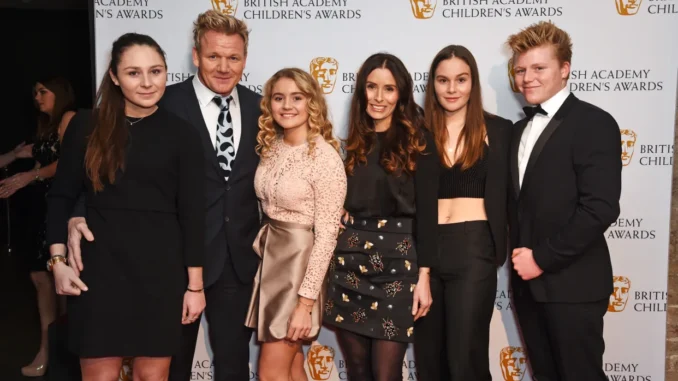
Some of Gordon Ramsay’s best – and most eyebrow-raising – moments on television involve his speech being heavily edited with bleeps and pixels to censor his colourful language. But while the Michelin starred celebrity chef may be famous for swearing on-screen, he has insisted that his famed vocabulary isn’t used at home in front of his children.
In an interview with People, Ramsay, 56, shared how his kids know exactly how to push his buttons. “If they want to tell me I’m wrong or they want to critique the food, I laugh,” he said. “I like it when they test me.” However, his responses to his and wife Tana Ramsay’s five children do not involve swearing, he reassured the magazine.
Tana confirmed her husband’s promise, adding: “It’s never been something that came home.”
While fans may find it difficult to imagine their favourite TV chef adopting a rule for clean language anywhere, Ramsay’s decision not to swear in front of his children is common among parents.
Aside from teaching good manners, many parents may think that cursing freely around kids might have a negative impact on their childhood. But what do the experts say?
Is it ever OK to swear in front of children?
Psychologist Dr Ree Langham, from Impulse Therapy, says that in general, adults should avoid swearing in front of children. However, mistakes do happen and should be considered.
“Parents are human, and occasionally, a swear word might slip out unintentionally,” she says. “I would suggest acknowledging the mistake and apologising to the child, this can demonstrate accountability and reinforce the idea that certain language is not appropriate.”
Children tend to copy the behaviour of their parents and other adults around them, and will likely repeat curse words if they hear them. The younger they are, the less awareness they have about what is socially acceptable.
Helen Neale, editor at parenting resource KiddyCharts, adds: “We need to accept that this can sometimes happen, and be forgiving of ourselves if we do it.”
Equally she says we need to be understanding and accepting of the child if they also swear, using it as a learning opportunity to explain why it isn’t acceptable.
While the occasional and accidental use of swear words around children is not always a bad thing, there are, however, some potentially negative repercussions to consider.
“One example of this is when it comes to children’s language development,” Dr Langham explains. “This can be hindered if they start to use swear words in place of more appropriate words. In some cases, this can limit a child’s ability to communicate effectively and respectfully.
